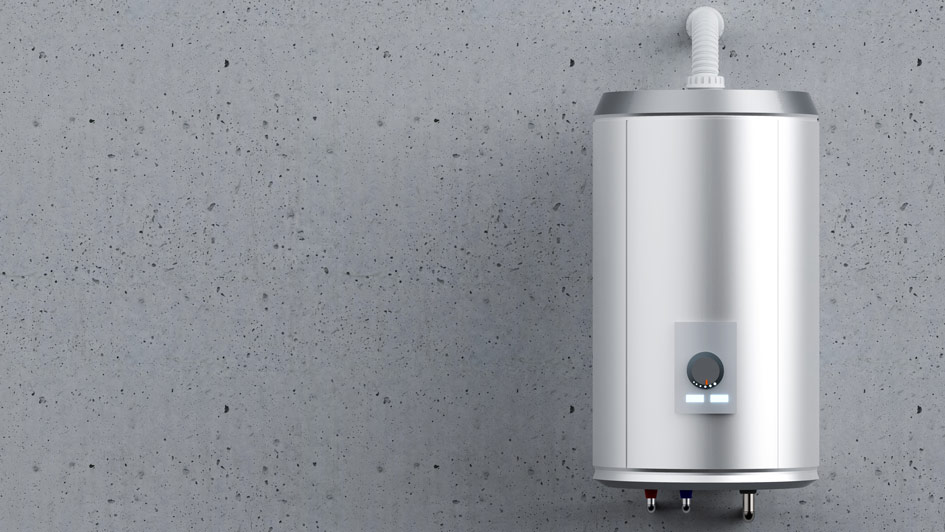
You may already have “smart” devices and appliances installed throughout your home without even knowing it. If you can adjust your thermostat from a smartphone or flip your lights on and off while you’re on the other side of town – those are typical smart devices.
Even plumbing products are going “smart” these days. Smart plumbing products may include smart water heaters, smart leak detectors, and smart water monitors.
Installing smart plumbing devices and appliances can establish an extra layer of convenience and security to your home, as well as lower your daily water usage and monthly water bills. Continue below to learn more about the benefits of installing smart plumbing products. And if you’re thinking of adding one to your plumbing system, make sure you have the help of a trusted plumber in Greater Richmond.
You might already have “smart” devices and appliances installed in your home without being aware of it. If you can control your thermostat from your smartphone or switch your lights on and off while you’re on the other side of town – those are considered to be smart devices.
Even plumbing products are increasingly “smart” these days. Smart plumbing products can include smart water heaters, smart leak detectors, and smart water monitors.
Installing smart plumbing devices and appliances can establish an extra layer of convenience and protection to your home, as well as optimize your daily water usage and monthly water bills. Keep reading to learn more about the benefits of installing smart plumbing products. And if you’re thinking of adding one to your plumbing system, see to it that you have the help of a trusted plumber in Greater Richmond.
Smart Leak Detection Systems
When a pipe bursts or your basement or crawlspace floods thanks to heavy rain, it’s pretty obvious that your home is experiencing a serious water leak that may cause extensive damage. But some leaks aren’t as obvious. Even minor water leaks from appliances or plumbing pipes can add up, contributing to higher bills and potential damage to your home.
That’s where a smart water leak detector comes in. Leak detectors should be installed in bathrooms, basements, underneath the kitchen sink, and near water-using appliances. Smart leak detectors monitor home water usage and alert you via your smartphone if there is abnormal water usage in your home – which can indicate a leak somewhere. They should also inform you if they detect a leak, or a running toilet.
If you’re on vacation and your water heater suddenly begins to leak, you’ll be notified immediately through your smartphone so you can contact a professional to get the leak patched and minimize further damage to your home.
Smart Water Heaters
Did you know the typical water heater accounts for about 12% of a family’s energy use, second only to your heating and cooling system? To keep your hot water heater’s energy usage under control, consider upgrading to a smart water heater. Smart water heaters are equipped with energy-saving features and remote controls.
So how do smart water heaters help exactly? Designed with smart technology, a smart water heater can analyze your home’s water-usage preferences and even anticipate usage and make automatic adjustments. Standard tank water heaters, for example, must continuously heat water throughout the day so hot water is available when you need it. With a smart water heater, though, you can shut your water heater off during the workday when you’re not home or when you’re away for work or vacation.
This can save energy, reduce water bills, boost safety, and give you more control over your appliance. On the subject of control, if you take a shower at 7 a.m. every day, you can schedule your water heater to start at 6:45 so you’ll have hot water waiting for you. Smart water heaters also inform you of any leaks or system errors using your smartphone. If leaks are detected, for example, the smart water heater will automatically shut off. This reduces damage to the appliance and your home.
Smart Monitors for Water Quality
Some of us probably have little idea how much water we’re using up. Smart water monitors are highly useful if you'd like to reduce your water consumption and save money on your monthly water bills.
Smart water monitors can capture helpful data that shows how much water you are using in your home or business and how much each appliance or fixture needs. Most water monitors include a web-based interface that enables you to supervise water usage in real-time. This sort of information can help you find out if you have an inefficient toilet that needs to be upgraded, or if someone in your household is routinely taking 30-minute showers in the upstairs bathroom–allowing you to make appropriate adjustments.
Along with saving money on your water bills, smart water monitors help homeowners improve their carbon footprint to guarantee there is enough water for future generations to come.
